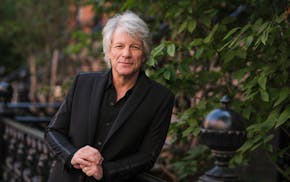How can you encourage more smokers to kick the habit?
Offer their doctors a cash bonus.
That's the conclusion of a new study from the University of Minnesota and Blue Cross and Blue Shield of Minnesota.
As an experiment, Blue Cross offered to pay medical clinics for referring smokers to a stop-smoking hot line. Clinics could receive up to $100 per referral.
In less than a year, those clinics referred nearly three times as many smokers to the hot line as those that didn't get the bonuses (11 percent vs. 4 percent), according to a study released Monday in the Archives of Internal Medicine.
Between 2005 and 2006, the insurance company paid out nearly $100,000 in bonuses for nearly 1,500 referrals.
No one knows how many of those smokers actually quit. Only about a fourth of those referred actually enrolled in stop-smoking programs, and the study didn't track their success rates.
But Dr. Lawrence An, the lead researcher, said the study suggests this may be an effective way to point smokers in the right direction.
"A lot of scientific evidence shows that these quit lines are very effective," said An, assistant professor of internal medicine at the U. "This is actually the first [study] that I'm aware of that has looked at paying the bonuses for direct referrals from physician offices."
It is, he said, part of a growing trend in medicine called "pay for performance," which links payments to results. "It's basically tying the financial incentives to doing the right thing."
Typically, it's up to individuals to reach out to hot lines -- such as Minnesota's Quitplan Helpline -- which offer free telephone counseling to help smokers quit.
But in this case, doctors were asked to talk to smokers about quitting and send their names to a hot line. As part of the experiment, Blue Cross offered 24 Fairview clinics a bonus of $5,000 toward clinic expenses if they referred 50 smokers within a nine-month period. For every additional name, the clinics got another $25 bonus.
Another 25 clinics were encouraged to send in names, without any financial incentive.
In the end, the bonus group referred 1,483 names, the others just 441, the study found.
At that point, it was up to the hot line to call the patients. All the patients agreed to the contact, An noted. "Nobody is being called without their consent."
Still, not everyone turned out to be overly enthusiastic. Four out of 10 never even responded to the hot line's calls. Only one in four of those referred agreed to give it a shot.
Exactly how many succeeded is uncertain. But the success rate for those who enroll in hot lines is generally 20 percent or more, according to An. Some hot lines, like Quitplan Minnesota, boast success rates as high as 33 percent. By comparison, studies suggest that only about 5 percent of smokers succeed in quitting on their own.
The sponsors consider the study a success. "We know that we can save literally millions of dollars by helping people quit smoking," said Dr. Marc Manley, a vice president at Blue Cross and Blue Shield of Minnesota. "This is really about changing clinic systems so these referrals are made automatically."
In fact, Blue Cross continues to offer bonuses for referrals to its hot line, Manley said. The money comes from its tobacco settlement fund, a legacy of its lawsuit against the tobacco industry.
"I think paying modest amounts that encourage clinics to sort of set up a new system, and deal with their smokers in a different way, does make sense," said Manley, who coauthored the study.
An, the university scientist, agreed. He argues that the financial incentives could more than pay for themselves.
"What we do know is that helping people stop smoking is probably like the gold standard in terms of health care intervention," he said. It "saves life and saves money."
The Quitplan Helpline, a statewide stop-smoking hot line, can be reached toll free at 1-888-354-7526 or online at www.quitplan.com.
Maura Lerner • 612-673-7384
Olympian Kristi Yamaguchi is 'tickled pink' to inspire a Barbie doll

After 4 decades in music and major vocal surgery, Jon Bon Jovi is optimistic and still rocking
Rom-com author Emily Henry knows the secret to having a healthy relationship with love

